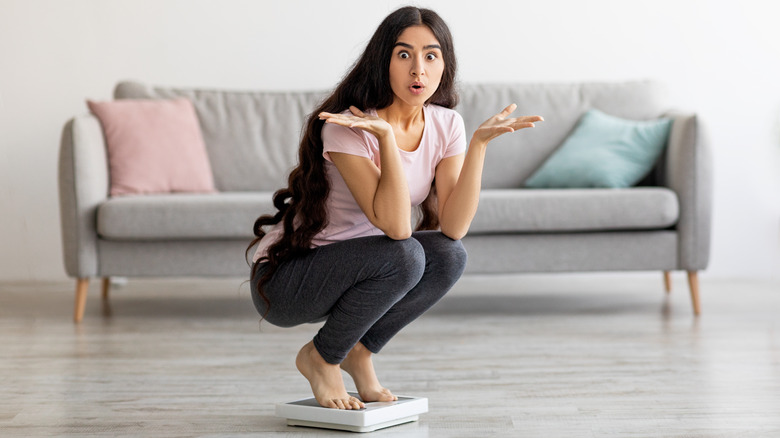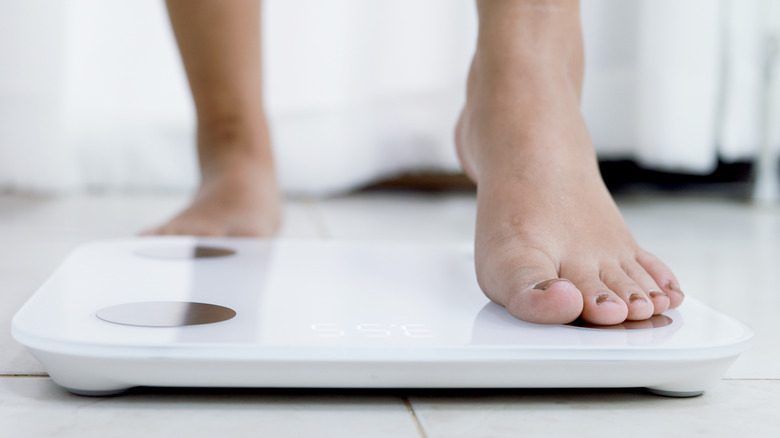Do Body Fat Scales Actually Work?
Weight loss can be tricky. Stepping on a scale each day can give you varying results, and standard scales don't give you much information about body composition. According to Medical News Today, the lower number on the scale could mean fat loss, but it also could indicate a loss of muscle or water. Water can comprise 50 to 60% of your body weight.
If you're adding weight training to your health routine, you might freak out when you see an increase in body weight, but this extra weight could easily be muscle, according to Healthline. Therefore, you could use body composition scales to track changes in any fat loss.
Although DEXA scans (dual-energy x-ray absorptiometry) are typically used to measure bone mass, they are also accurate in measuring body fat (per Healthline). However, DEXA scans are expensive and can only be accessed at a medical clinic.
According to Houston Methodist Hospital, body fat scales are a little more reasonably priced and are meant for routine use at home. They work by sending a small electrical current through the body and measuring "bioelectric impedance", which is how much resistance this current meets. The more resistance, the more body fat you have.
The accuracy of body fat scales
A 2021 study in JMIR mHealth and uHealth compared three body fat scales — Body Partner, DietPack, and Body Cardio — against a DEXA scan. Although all three scales measured body weight accurately, they underestimated body fat.
According to Houston Methodist Hospital, the readings on a body fat scale can significantly vary according to how much water you might have in your system. The scale could give you a high body fat percentage reading if you're dehydrated. The reading could also be inaccurate if you carry excess water weight in your legs. Less water means more resistance, and vice versa.
Although body fat scales can give you an overall body fat percentage, they can't tell you where you hold excess fat, according to Healthline. Visceral fat, which covers your organs, is more dangerous (via WebMD).
This doesn't mean body fat scales are useless. Houston Methodist Hospital suggests using a body fat scale to track trends and progress over time. In other words, don't obsess over a single reading, but instead, step on the scale every day at the same time under similar conditions.
You should be well-hydrated and avoid taking a body fat reading after alcohol, caffeine, or exercise. Don't forget to take into consideration any safety warnings (e.g. if you're pregnant or have a pacemaker or defibrillator).


